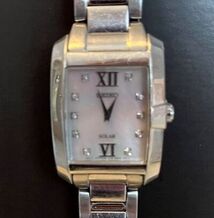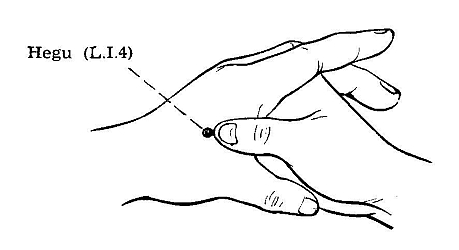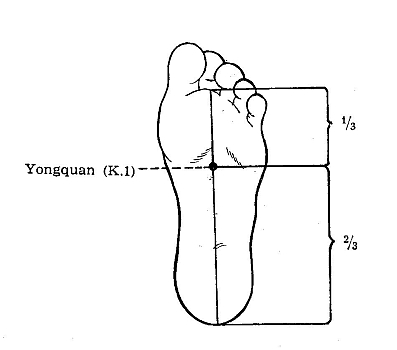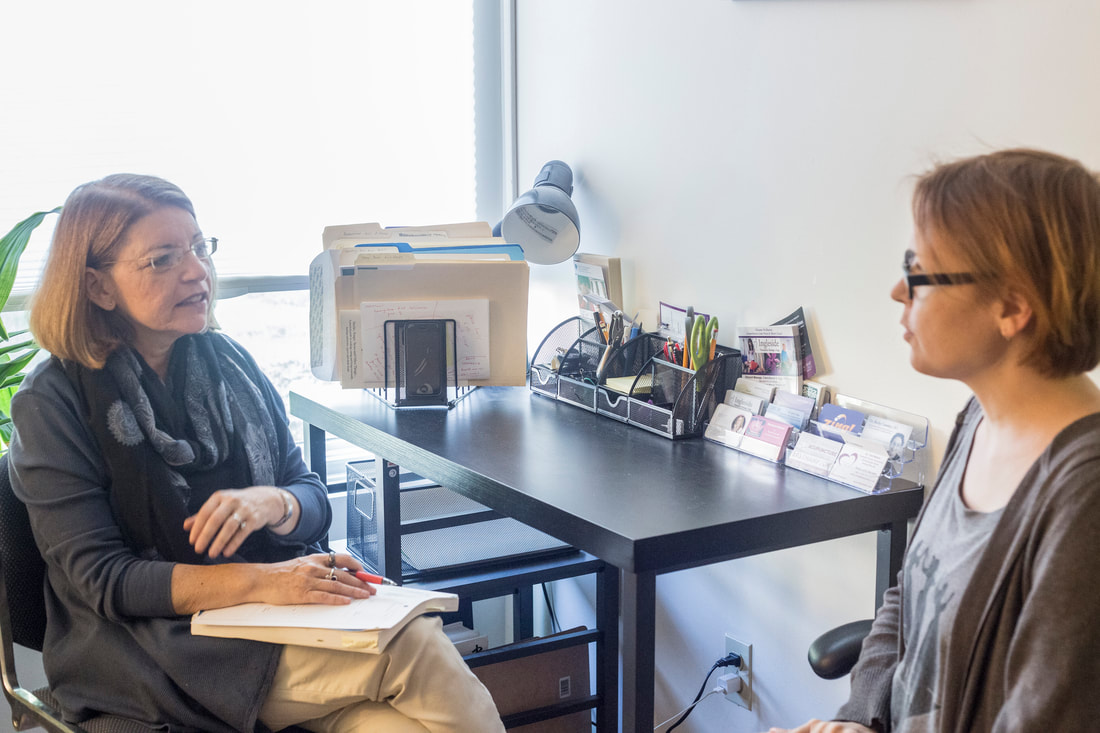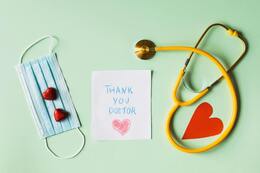 Do you have an upcoming doctor’s appointment that you’re a little anxious about? Or have you put off scheduling one? Read on to learn why Western Medicine is important and how to make the most out of medical visits. Western Medicine excels at two important aspects of health, screening for serious illness and offering lifesaving treatment. I had firsthand experience with this when I was diagnosed with and then treated for chronic kidney disease, eventually getting a kidney transplant. This care kept me off of dialysis and extended my life by many years. It also meant that I had many, many medical appointments over the past two years. Here are some of the things that I learned. Get an annual physical. There are health conditions like cancer and heart and kidney disease that can progress undetected for a long time. While being evaluated as a potential donor, they discovered a growth on one of my husband’s kidneys. Because this was detected early, they were able to remove it before it became problematic. Work with doctors and nurses that you like and respect. When I had a lot of uncertainty about whether I would find a kidney donor, it was so helpful to have a doctor who assured me that he would help me get through whatever happened. When I found a donor, my transplant team was fabulous. They listened to me, honored my requests and answered my questions. Arrive early for appointments. Be sure to leave plenty of time to get to appointments. Give yourself extra time in case there’s traffic. Leave time to find parking and the medical office. Doctor’s visits can be stressful and it helps to be able to relax for a few minutes in the waiting room. My blood pressure could be up to 30 points higher than usual when I first arrived for an appointment. When I sat and relaxed, it would drop significantly. Bring a list of medications & supplements that you are taking. Every doctor, nurse and medical assistant that I met with so appreciated having a one-page list of medications and supplements that I was taking, including what time I took them. This made their job much easier. Bring a written list of questions. Most medical appointments are over in a short amount of time. If you write down your questions it’s less likely that you’ll forget questions that you have. Ask questions about things you don’t know or are concerned about I learned that as a patient you always have the right to ask questions about your illness and about medications and procedures that have been recommended. Bring someone with you. My husband went with me to every visit having to do with my transplant. He remembered things that I was a little fuzzy on. We were able to compare notes about our opinions about the different transplant centers that I was evaluated at. Get a second opinion. If you’re dealing with a serious medical condition, it’s helpful to get a second opinion. It takes a little more time, but the payoff is either increased confidence in the original diagnosis or knowing that you may need to do more research to get the care that you need and deserve. Get clear about your preferences. Ultimately, each of us has to make decisions about our care. Surgery and medications come with side effects and risk. It’s helpful to know what these are. It’s also helpful to know which medications are absolutely needed and which are optional. I decided that I didn’t want to be on Prednisone, often prescribed for life after a transplant. I had to specifically ask for this based on my understanding of its risks. I made a good case, and while it was used right after surgery, I was off of it by the time I left the hospital with the blessings of my doctors. Oxycodone, Tramadol, Pepcid and Senna were prescribed after surgery but when I asked, I was told that I didn’t have to take them. My team was fine with me taking extra strength Tylenol and eating healthy. Western medicine offers lifesaving care. And, in the world we live in today, we have to be good advocates for ourselves. It can be a lot and at times overwhelming. I hope that my recommendations will make the process easier for you. As we advocate with our doctors, nurses and other providers, we also have to take care of our minds and bodies on a day-to-day basis. In my practice, along with treatments, I offer practical advice to help my patients with diet, exercise and emotional well-being. I write a lot about this in my blog on health and my Yummy Healthy Food blog. Take a look. If you’re interested in individualized, ongoing care, please do schedule a free online consultation. All best, Bonnie
0 Comments
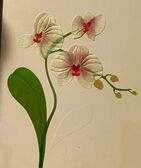 Have you ever had the experience of going on vacation and finding that whatever aches and pains you had been experiencing go away? You’re freed of responsibility, given time to enjoy yourself and suddenly you feel healthier. This is your spirit, alive and well. East Asian Medicine refers to the spirit as an essential part of our being. In this system of medicine, all the organs have a physical, emotional and spiritual element. The heart is the ruler of the different spiritual elements. It houses the Shen, translated as mind or spirit. It is our consciousness and vitality. When the Shen is in balance, there is ease and joy in our lives. This sense of ease then spreads to all of the other organs. The spirit isn’t some woo woo thing. It’s one of the most powerful aspects of our being. And the spirit isn’t just something that we are given at birth. It can be strengthened at any point in our lives. In the next few emails, I’ll talk about practices that make our spirits stronger. I had to lean into these practices while I was waiting for a kidney donor. I would notice the sunshine coming in through the window, moments when I was able to feel at peace, times when friends and family reached out to offer support. I had to keep telling myself that things would work out okay. The easiest way to access your spirit is to close your eyes. In your mind take yourself to a place where you feel fully alive and at peace. You may need to scan your life to find this place. Think of moments when you were truly happy. When you have found this place, notice all the details in your surroundings. What is the weather like? What do you see? What do you feel? Is there anyone with you? Then check in with your body. Notice how you feel when you imagine yourself in one of your favorite places. Remember that you can return to this place in your imagination whenever you want to. In your favorite place, it becomes easier to feel the rhythm of your heart. When you feel this rhythm, you create an opening, a safe place, for healing to happen. Your spirit comes alive. You may feel a sense of hope and possibility. Interested in deepening your relationship to your spirit and learning practices to heal when you are in need surgery or medications? I’m offering an online workshop with River Valley Coop, “An Acupuncturist’s Approach to Integrative Care” on April 17th at 6:30pm. You can register here. In your most difficult moments, may you find light and strength. With you on the journey, Bonnie One of the real gifts of going through a kidney transplant, aside from the obvious, was being told that healing would take time.
No one expected that I would feel fine right away. They told me that I would have medical appointments and blood work each week for a month and physical therapy twice a week. After that initial month, PT would end and appointments would be every other week, then monthly. Because I was given this information, I was able to have reasonable expectations while I was going through the healing process. I could plan on taking time off from my practice to heal. When I felt like crap, I could tell myself that in a week or two, I would feel better. Having time was a real luxury. It’s one that I encourage you to lean into if you are struggling with illness, pain or distress. But how to do this in a 24/7 fast-paced world with all kinds of obligations? Here are my recommendations: -Make realistic expectations about the amount of time it will take to recover Begin by letting go of the need to recover immediately. Talk to your healthcare providers for some guidance. If no one knows the timeframe, begin by giving yourself a few weeks if you’ve suffered a minor injury and a few months for something more severe. -Get curious about what’s actually going on in your body It’s helpful to take stock. Write down a list of what symptoms are bothering you. If you’re more of a visual creative type, make a drawing of the areas where you feel pain. -Spend time each day engaged in something that leads towards your health Many injuries and bugs heal on their own. Initially, rest may be what your body needs most. Give yourself time for that. If you’re still not feeling better, there is a good chance that you’ll need to do something – contact a nurse or doctor, reach out to a complementary practitioner, do some gentle stretches, make some changes to your diet. In addition to these practical steps, it’s important to be in the right mindset. Set aside 5 minutes every day to imagine yourself feeling better. Before my transplant surgery, every time I was exercising on my bicycle trainer, I would imagine doing this post transplant. (I felt so great when that actually happened!) The brain and nervous system want you to befriend them. They function better when you give them care and support. -Add comfort to your life. Do something that brings you joy. Listen to a favorite song. Light a candle. Take a warm bath. It’s important to have moments where you feel good even in the midst of illness. -Prioritize your obligations. While your recovering, there will be many things that will go by the wayside. It’s important to choose what you absolutely need to do and what you can put aside for when you’re feeling better. When you consciously do this, you’ll feel more in control and less overwhelmed. -Track your progress Your body is always giving you information. Pay attention to what it is telling you. The easiest way to do this is to write down what you are experiencing. In my practice, I offer a booklet that I call “Roadmap to Health,” which contains monthly and weekly calendars. It’s helpful to have something that tells you your progress in a glance. Here’s a link to my booklet. Your favorite journal will also work. Feel free to share with me a time that you recovered from an illness or injury. And if you are still struggling, know that you can reach out. With you on the journey… Bonnie Life sometimes throws us curveballs. If you’ve lived long enough, you’ve encountered illness, pain or emotional discomfort -- often all three at once.
This recently happened to me when it became apparent that my best chance for a long and healthy life was a kidney transplant. On my own, I honestly couldn’t imagine it. It seemed like my doctors were suggesting the equivalent of space travel to Mars. It took me many months to get to the place of acceptance. I didn't know how to get there when all I wanted was for the problem to go away. Here's what I learned from this experience. The road to acceptance has these components: reaching out to other people, getting accurate medical information and trusting in something greater than ourselves. I think each component is important. Trust without medical knowledge limits us, as does knowledge without a support system, and support without trust. Here are my tried-and-true thoughts about each component. Reaching out to other people: Whatever you are going through, someone else is going through as well. Perhaps not in the exact same way, but close enough. To find a kidney donor, I had to go public. This was a challenge, but the benefit was the gift of years of prolonged life and health. You may not want to share the details of your health so publicly, but do reach out to the people you love and trust. You don’t know where you’ll find the resources that you need. People absolutely want to be helpful if they can be. I’m not a huge social media person, however, FB has a moderated group of 20 thousand people who have had or will have a kidney transplant. They answered my questions, shared their experiences, celebrated kidney transplant anniversaries. They made me feel less alone. There are non-profits whose mission it is to help people struggling with an illness. Reach out to an organization for information and support if you have chronic pain, diabetes, cancer, heart disease, etc. I eventually found a donor through, Renewal, an organization that helps facilitate kidney donation. Getting accurate medical information: Check reputable websites like the following to learn about symptoms, diagnosis and treatment. https://www.mayoclinic.org/diseases-conditions https://my.clevelandclinic.org/health https://www.health.harvard.edu/topics/back-pain https://draxe.com/ Get more than one opinion, particularly if you have a serious condition. If everyone tells you the same thing, you’ll feel more confident about your treatment. Get clear on your options. Often treatment is about trade-offs. Medications and surgery have potential side-effects. Find out the risks and benefits of various treatments. See if acupuncture, life style changes and other forms of complementary care might be able to treat the problem or reduce side-effects of treatment. Trust in something greater than yourself. Whatever your personal religious or spiritual beliefs are, we are part of a living, breathing ecosystem. There is a life force that sustains us. The ancient Chinese called this force qi. We are alive because our bodies are designed to take in air and food and water. We live in an interconnected web of life. Sickness is a part of this web, but so is healing and health. Before we learn to speak and walk and conceptualize things, we are living creatures who breathe without effort, eat and poop. We catch a virus and generally we recover. Outdoors the sun rises and sets, the seasons change, plants grow and produce food. And all of this happens by design. I find it helpful to lean into this design during times of pain and uncertainty. To feel the support of a life force greater than ourselves. To give ourselves over to that force without attachment to outcome. There is a kind of surrender that allows us to accept whatever may happen. In this state, all is well. (Note: Getting to acceptance takes time for most of us. Stay the course.) If you belong to a religious organization, talk to the clergy there. If you don’t belong but feel like you need spiritual support, most clergy will talk to you. If you are hospitalized, there are chaplains on staff. If you love nature, go sit or take a walk in the woods. I spent many hours at Mount Tom and Arcadia “talking” to the trees, “telling” them I would be back after my surgery. Do whatever makes you feel whole, go to wherever you feel safe. If you are sitting, feel how the chair holds and supports you. If you are standing, feel the ground beneath your feet. The road to acceptance is bumpy and non-linear. Some days are easier than others. If you are feeling lost or overwhelmed because of a health condition, please do reach out to me. I’m happy to have a conversation to offer support and ideas for what steps you might want to take. To each of you, I send out this wish, “May you find peace, may you find healing, may you find ease, may you find alignment.” All my best, Bonnie  Headaches come in a variety of forms from tension headaches to migraines. Causes include structural, hormonal and immune system imbalances, sinus congestion and one of the most common culprits – stress. Whatever the cause, headaches can be debilitating – wrecking havoc with the best of lives. Here are some simple suggestions to get relief:
The most important thing is to begin to find relief. On your calendar, write down the day and time of day when you have a headache. See if you notice any patterns. Start practicing the above suggestions. See if they make a difference. Keep track of how you are doing. By paying attention, YOU can become a healthier, happier person!
 Oriental Medicine teaches us that we need to rest. Our active yang side needs to be balanced by our receptive yin side. Just as day turns into night, activity gives way to rest. This is one of the primary rhythms of our lives. Western science is finding evidence that this can be verified by studying the brain. Scientists have known that memories are formed and consolidated during sleep. In addition, a study published in the journal, Science, provides evidence that waste products that accumulate in the brain are removed to a much greater extend during sleep. Those zzzzs are truly important. Most people need between 7 and 9 hours of sleep. For some of us, we just don’t allocate that much time. In our fast-paced culture, it’s easy to burn both sides of the candle. So it’s important to ask, “Am I allowing myself to get sufficient rest?” If not, it’s time to take a look at your calendar and make some adjustments.
Other people are in bed at a reasonable hour, but have problems falling asleep and/or staying asleep. Here are some suggestions.
Here's to sweet dreams!
 Have you found yourself waiting for the perfect moment for life to begin? Are you putting off the things that truly matter to you for the day you lose 10 lbs, you get that new job, you meet the perfect partner? Here’s the secret: we only have this moment. I learned this over twenty years ago when I was diagnosed with the not-so-well understood illness, Chronic Fatigue Syndrome. I had a sore throat, low-grade fever, muscle aches and fatigue like nothing I had ever known before. A walk across a room became an exercise in exhaustion. Yet, the illness turned out to be one of the greatest gifts I was ever given. Let me be clear. This was not the type of gift that you ask for, for Christmas or your birthday. It’s not the type of gift you excitingly rip the wrapping paper off of thrilled that somehow your life – a least for the moment – is complete. It’s not tickets to the theatre or a night out on the town. It’s the type of gift you curse for ever having been given to you. All the same, chronic fatigue syndrome changed my life for the better, in ways I still can’t completely comprehend. My journey began when an acquaintance suggested that I try acupuncture. I went for treatments and was blown away by this ancient, healing tradition. While it wasn’t a cure, I could feel energy moving in my body. I became more interested in Oriental Medicine and went back to school to get my Masters Degree. At the same time, I tried every treatment that I could get my hands on: herbs, homeopathy, nitroglycerin, shots of vitamin B12, intravenous vitamin C, special diets and nutritional supplements. The illness waxed and waned. Finally, I noticed that the illness had a seasonal component to it. It was worse during the winter. I invested in a 10,000 lux bright light and started taking a supplement called NADH. After using these for several months, the illness subsided and has never returned. Even before this happy ending, my life had changed. I learned the following lessons, which I want to share with you: • set limits on your time and energy • rest when you need to rest • listen to your body – it is always speaking to you • ask for and accept help • eat foods that sustain you • get an appropriate amount of exercise • choose the things in life that are important to you • set simple, achievable goals The most important lesson is to start living the life you want now. This doesn’t mean running a marathon, traveling to a Greek island or finding your dream job. It means being creative in bringing positive experiences and people into your life. It means finding joy in life. I love to cook and I love to ice-skate. So when all I had the energy to do was to lie on the couch I was sure be watching PBS’s cooking shows and figure skating competitions. The tools that I learned while I was dealing with chronic illness are the tools that I share with my patients and those I meet who are on the path to a healthier life. Let me know about your positive experiences — the ways that you’ve made this day better for yourself. Be inspired to live the life you want now! |
AuthorIn practice for over 20 years, Bonnie Diamond offers individualized, heart-centered care using a pain-free, Japanese style of acupuncture. Her work is influenced by her nine year struggle with and complete recovery from Chronic Fatigue Syndrome. Archives
April 2024
Categories
All
|
Serving Easthampton, northampton, Holyoke, Springfield, Chicopee, Westfield and Western Massachusetts
|
Hours are Tuesday-Thursday, 11am-7pm
|
247 Northampton Street, #27 Easthampton, MA 01027 781-718-6325 Get directions Get information on other complementary health resources recommended by Staying in Balance. Pioneer Valley Community Resources |
Copyright 2000-2022 All rights reserved.
